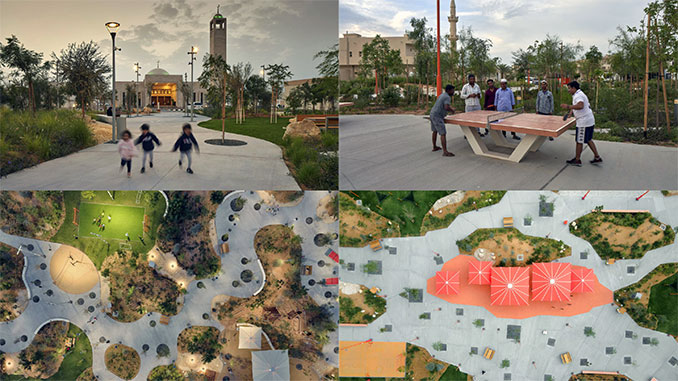
Using only native trees, plants, and nature-based design, landscape architects SLA has turned barren city blocks of sand into sustainable, active, and biodiverse community parks for the local population of Abu Dhabi.
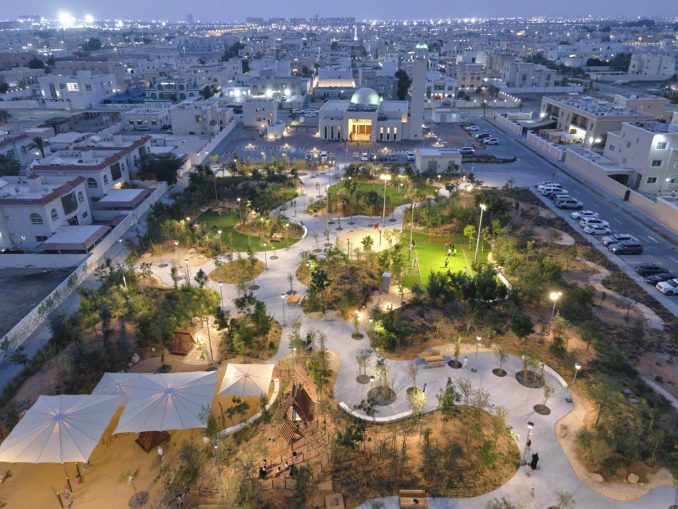
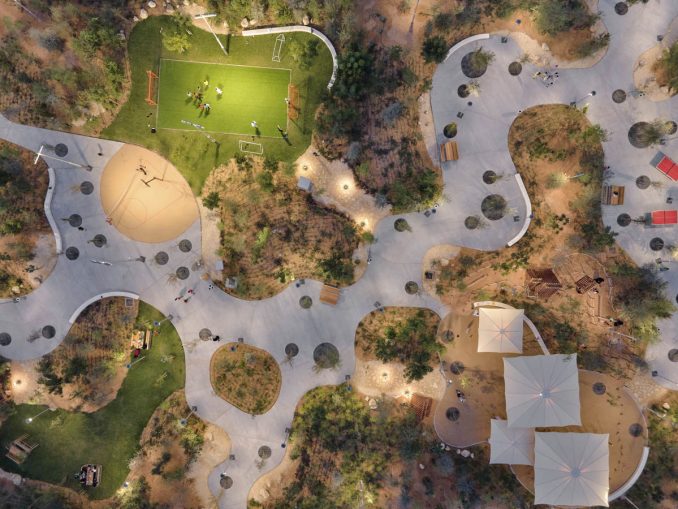
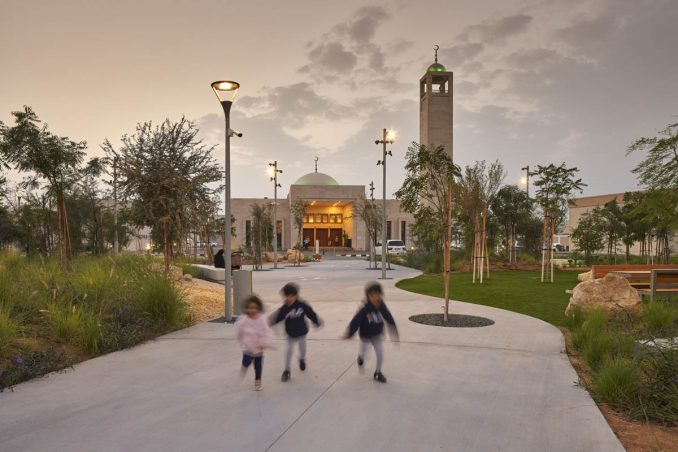
Six new kinds of nature-based parks have seen the light of day in the Abu Dhabi neighborhood of Khalifa City. Using only native trees and plants, six new city-block-sized parks have turned previously empty sand sites into new sustainable, active, and social places for all.
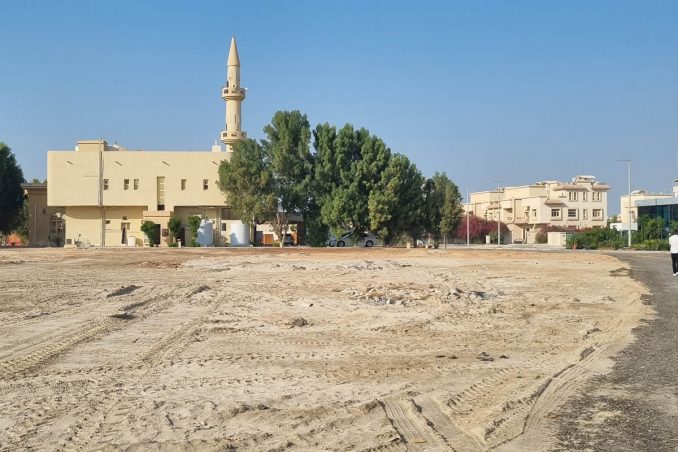
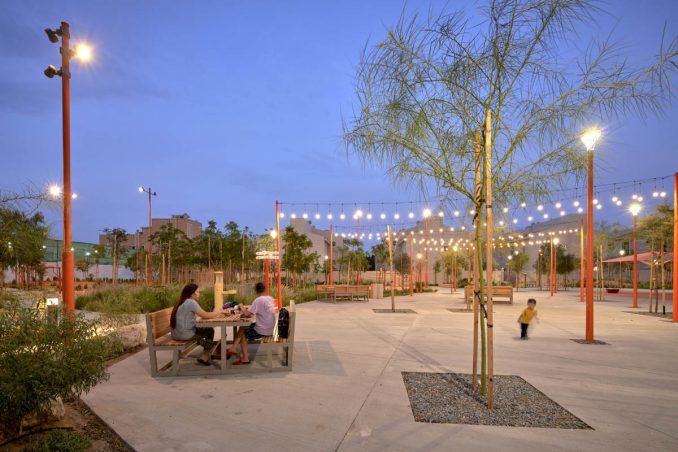
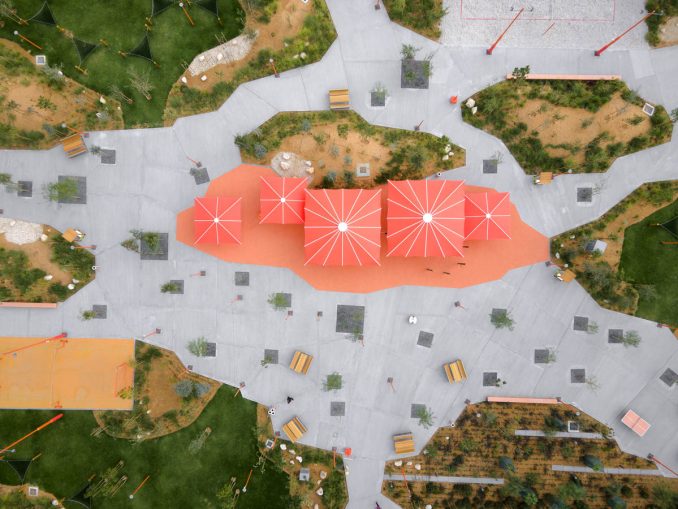
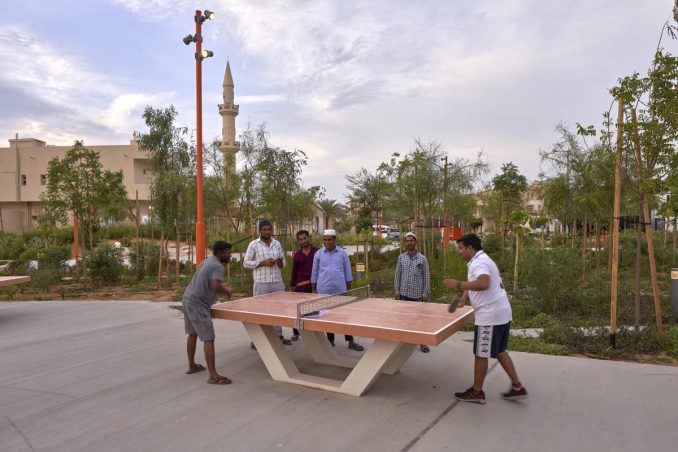
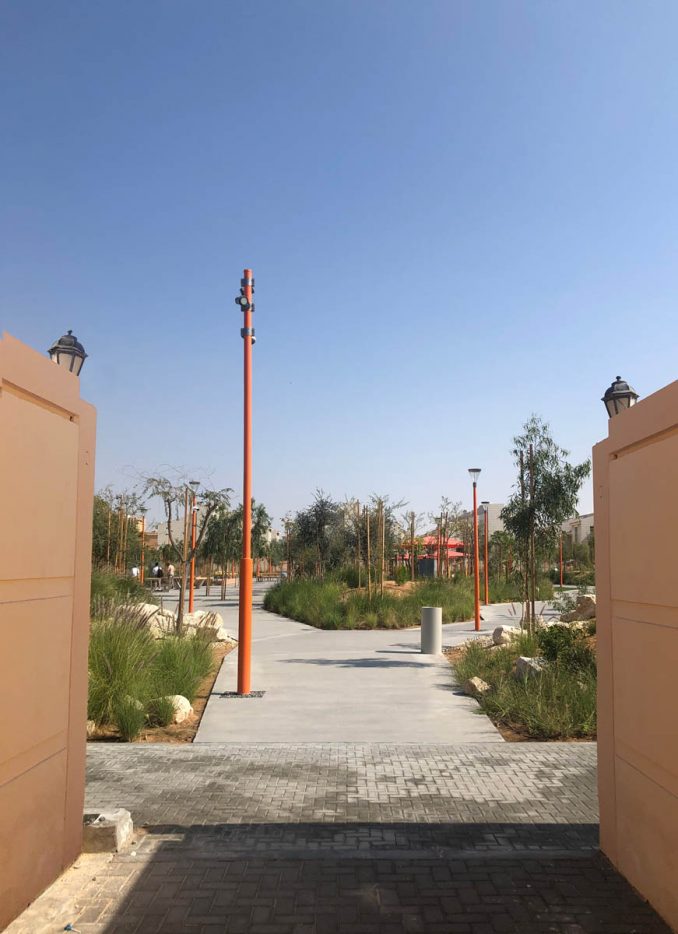
The parks are part of a major revitalization of Khalifa City, an Abu Dhabi suburb with more than 100.000 citizens. The parks were designed by SLA for the Abu Dhabi Department of Municipalities and Transport and show that no magic tricks are needed to conjure sustainable greenery in a desert. Instead, SLA has used local nature to design new places for active, social, and sustainable life – for children, adults, and wildlife alike.
“The parks represent a new way of creating livable and social neighborhoods in Abu Dhabi. By focusing on the local nature and getting a deep understanding of the specific context, we have created six distinctive and highly inclusive parks that celebrate the public life, social culture, and history of Abu Dhabi. Khalifa City is designed with a classic grid plan with walled villas and rowhouses and the unique pedestrian passageways in-between, known as ‘sikkas.’ These sikkas, with a history dating back hundreds of years, cleverly contribute to the public realm’s climate adaptation by providing shade, cooling, and optimized microclimate for the residents. We are fascinated by these local traditions and have integrated and renovated the sikka-passageways as part of the project, enhancing the neighborhoods’ identity and climate resilience,” explains Rasmus Astrup, Design Principal and Partner in SLA.
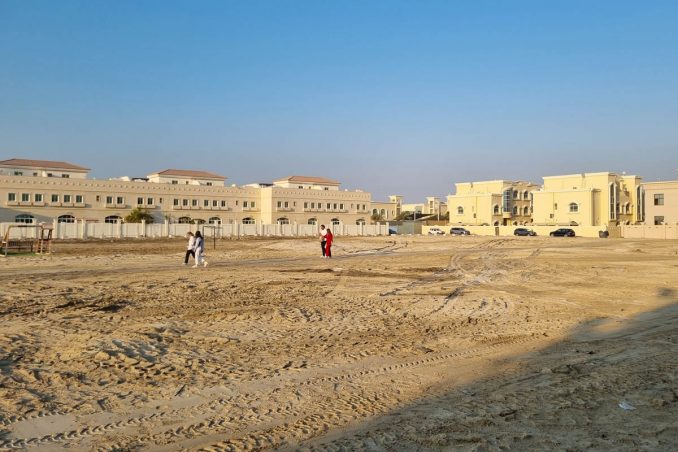
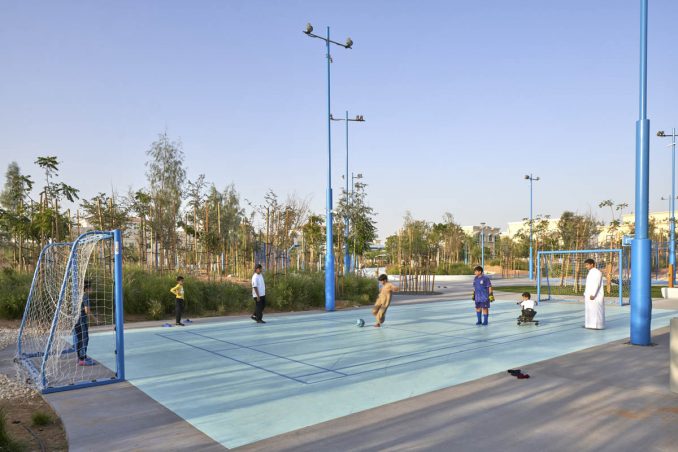
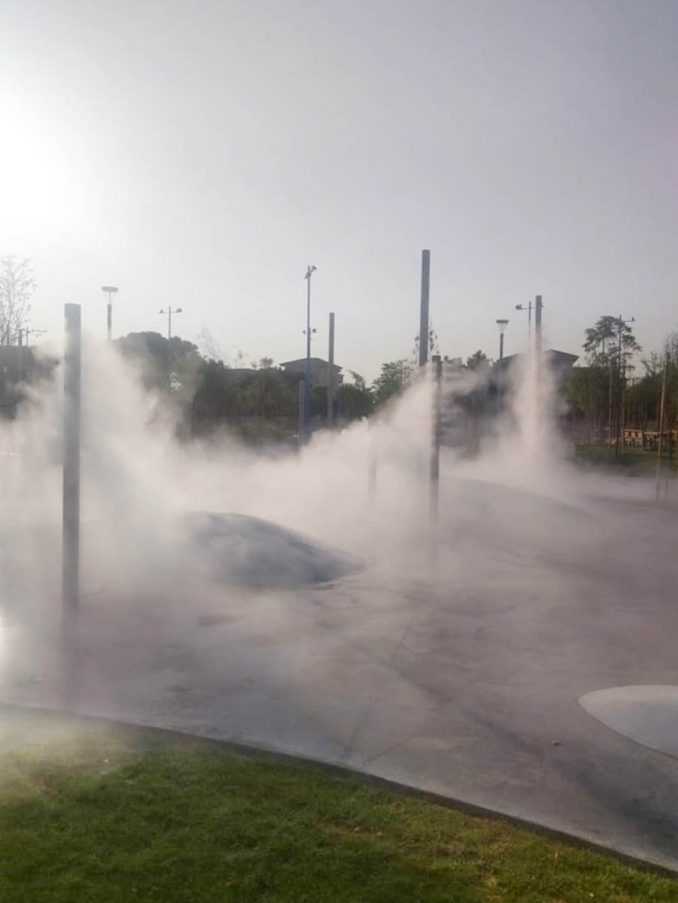
Enhancing biodiversity and life quality
Building upon years of ecological research in Abu Dhabi’s plants and biodiversity, SLA has designed the six parks to contain more than 6,700 trees and bushes, made up of 40 different native plant species. All are specifically chosen to minimize irrigation, strengthen biodiversity, and maximize natural cooling for the well-being of the park’s many visitors. SLA’s biodiversity study identifies 40 plant species, 55 bird species, 56 insect species, 3 mammal species, and 4 reptile species likely to inhabit or utilize the new parks.
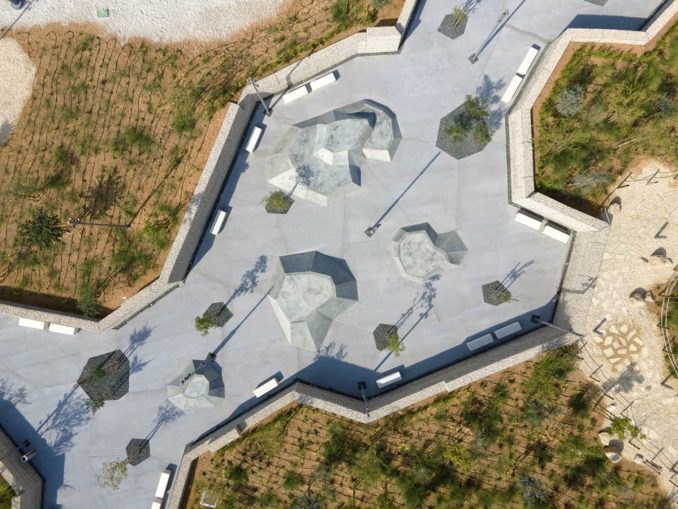
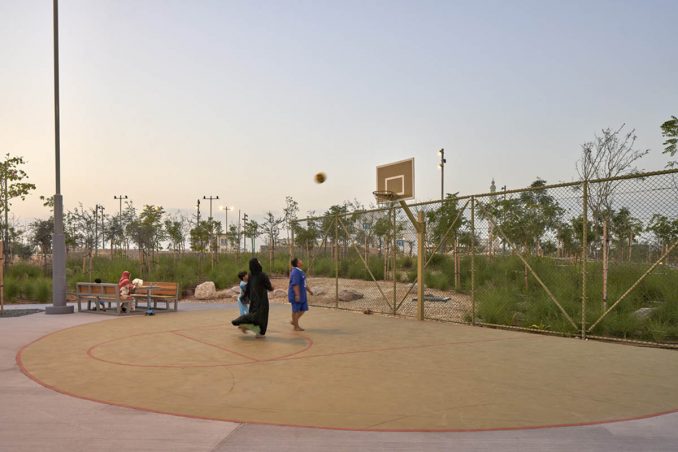
Slotted within the neighborhood’s existing network of pathways, or sikkas, the parks are squarely meant to serve the community: where children previously had to pile into a car to go to a playground, locals are now surrounded by green spaces with football pitches, tennis, basketball, and padel courts.
“Khalifa City’s color palette, shapes, and scales have a monotonous quality, inspiring our aim to introduce new colors and design expressions that evoke a sense of local identity and place. As a first step, we replaced the generic plot numbers with names inspired by our site visits. For example, ‘Ranim Garden,’ is named after the lush gardens filled with bird song that surrounded the plot. Now, after introducing the native plantings, there are even more birds. This is truly a park that changed the soundscape,” says Rasmus Astrup, Design Principal and Partner in SLA.
All in all, the design shows how to combine native nature, innovative urban design, and local communities to create good, social, and sustainable places brimming with life – all life.
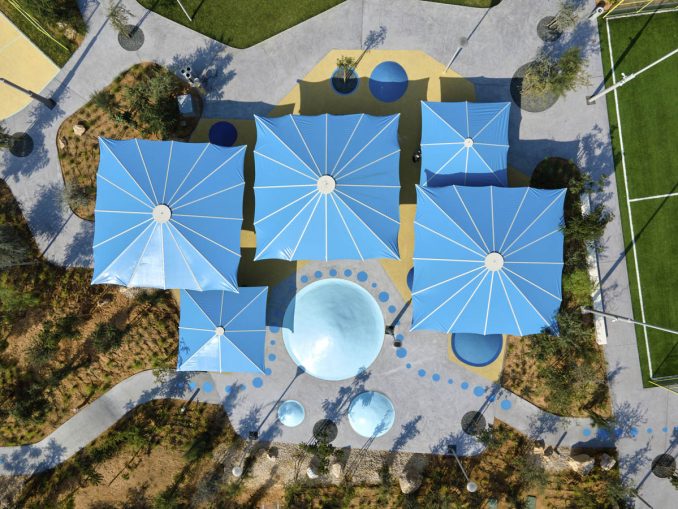
The six neighborhood parks are the latest among several nature-based park projects SLA has completed in Abu Dhabi. The six parks are a combined 51,600 sqm and contain more than 6,700 native trees and bushes, and numerous activities for sports, play, and social gatherings.
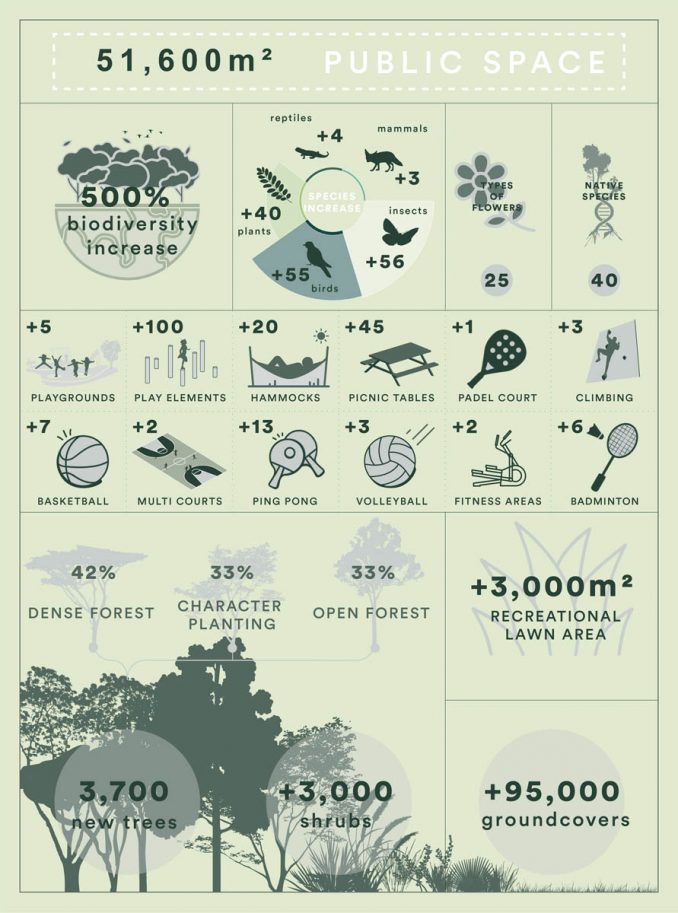
All six parks are designed to have their own distinct identities and characteristics devised from the local community and context. The parks’ names are Ranim Garden, Mashtal Plaza, Afnan Garden, Himma Park, Sadim Park, and Tilal Park.
Khalifa City Community Parks
Location: Abu Dhabi, UAE
Landscape Architect: SLA
Client: Abu Dhabi Department of Municipalities and Transport
Collaborators: Parsons (architect of record), Nulty+ (lighting), and Endpoint (signage and wayfinding)
Image Credits: ©SLA/Philip Handforth
